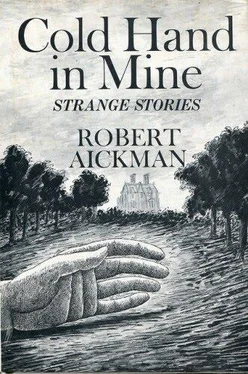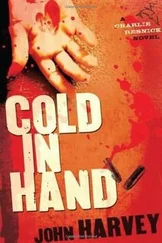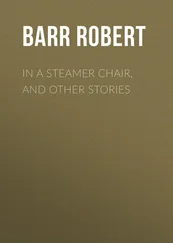All these things were entirely enough to settle the matter. But what really settled it was, I think, something quite different. It was as if Mr Millar had injected me with a lightly paralysing fluid, cocooned me in an almost indetectable glaze or fixative; diminishing my power of choice, weakening my rational judgment, to say nothing of the super-refinement that had been put upon it by the super-refinement of the way I had been brought up. Though, when I thought about it, I was antagonized by almost everything to do with Mr Millar, yet I realized that he was an experience (or ordeal) I might be unwise to avoid. I could not live for ever as a child, free and light as air. As we acquire weight in the world, we lose it within ourselves. Maturity is always in part a matter of emptying and contracting. By that standard, Mr Millar, almost weightless, almost adrift, almost without habits (where a baby has nothing else), had passed beyond mere maturity; but contact with him amounted to a compressed and simplified course in growing up. Mine was similar to the real reason why a schoolboy does not run away from the school he hates.
One evening — it was perhaps seven o'clock — came Maureen, once more tapping gently at my door.
"How are you getting on?" she asked. It was the first time in months that actual spoken words had passed between us; and never before had she been able to visit me except in the afternoon, between her job and collecting the youngest child.
She was wearing a short, sleeveless grey dress, with a scooped out neck: very little of it altogether in fact; and with several stains on the front, left there by cooking, or the children. She wore no stockings and a pair of high-heeled shoes that more or less matched her dress. She had left off her slide, and her hair was drooping over her eyes, so that she had to look up from under it. Her hands were in need of a wash, and there was even a small grimy patch on her face.
It was summer, and I was wearing simply a shirt and trousers.
I stepped up to her and held her tightly and kissed her as if it were for ever.
"Stranger!" said Maureen affectionately.
I took off her dress, quite gently; and then wriggled her out of her underclothes, which were charming.
We lay down together on my cheap bed, neither glamorous nor particularly comfortable.
"What about you?" asked Maureen.
So I removed my own clothes, which I had quite forgotten about; and I put her shoes neatly alongside one another.
We were together for three or four hours, until long after it was dark, listening to our hearts, and, intermittently, to the sounds of London.
I did not ask her about her husband and family, nor did she expound; and when suddenly she said, "I'm going now," my luck was in, or ours, because Mr Millar was not even walking from room to room with bits of paper in his hands, let alone entertaining the visitors. I should have hated Mr Millar to have seen me kissing Maureen goodbye.
"When can I see you again?"
"I simply can't tell you. We must make the best of the present." Talk about maturity! I still had far to go, and perhaps had even experienced a setback, a reversion to happy childhood.
I have said that the pageant (or mirage) of Mr Millar's life seemed steadily to work up, to intensify.
One thing that was a new embarrassment as far as I was concerned was that Mr Millar was drinking. The ludicrous side of it, if one saw it like that, was that large crates of cheap spirits were continually being delivered to the house by men in peaked caps. Remarkably often they rang my outside bell instead of the one appertaining to Messrs Stallabrass, Hoskins and Cramp. I would toil down, with all the men in their braces staring at me as if they had never seen me before, and all the girls giggling, and then have to toil up again; the booby who had fallen into the trap. (Mr Millar himself continued almost invisible during working hours, at least as far as I was concerned. For a time I wondered whether he did not use the day for sleeping.) I have described the spirits that were ceaselessly delivered as "cheap": they were gins made by brewers, and whiskies not made in Scotland or in Ireland; both with jazzy labels on the bottles.
The alarming side of Mr Millar's new propensity was that now when I returned home, I would sometimes find him not wandering about, but sprawling or huddled on the staircase, very white and dishevelled, breathing hard, and once or twice with the pupils of his eyes unnaturally turned upwards. The stairs would smell of drink, sometimes the whole house, though I do not think I ever actually saw Mr Millar with a glass in his hand or a bottle (after that first uneasy party with him, of course). None the less, he must have been drinking heavily, if one might judge by the deliveries; and I began to fear worse consequences, such as delirium tremens, concerning which I felt the apprehension that arises from total ignorance. My great-uncle, again, had been terrifying on the subject without going much into detail, "while your mother's in the room", as he had said. Nor did the possibility of finding Mr Millar lying dead on the stairs rather than merely insensible at all attract me.
In the meantime, the aspect of the matter, not necessarily either funny or frightening, which none the less gave me the most trouble was that Mr Millar, instead of merely talking to himself, had begun to warble and carol, to bawl and bellow. He seemed capable of keeping it up, at least intermittently, for hours on end, as he fussed around.
When he was japing his late-night friends, the noise could be appalling. The urban sons of toil, even when the nature of their toil is probably criminal, are seldom slow in striking up, nor, traditionally, are the daughters of joy, who seemed to constitute the larger part of Mr Millar's acquaintanceship. Indeed, the police came ringing in protest: at my bell of course. And, on another occasion, banging and thumping at the outer door; a small posse of them, to judge by the sound; and by the stamping when once they had got in.
As far as I was concerned, there was occasionally another kind of interruption. I would hear hysterical shouting in the room below me and then steps running up my own uncarpeted stair. There would be frantic pounding at my attic door, and when I opened it, a dishevelled girl too distraught to say what was the matter. I would glance over her shoulder as she stood there crying and raving and beating at me to let her in; and there would be Mr Millar at the bottom of the stair, comparatively calm, though not always entirely steady. He never spoke a word at these times, but seemed merely an uneasy spectator, collapsed against the banister. One might have thought him genuinely embarrassed and baffled by what had happened: resolved not to take the risk of saying a word when someone else was dealing with the situation.
In all the circumstances, I could not possibly admit the girl, so I would edge her downstairs again, saying that I would see her safely out into the street, and of course trying to buck her up, though I had no idea how best to do that. We would creep past Mr Millar, sometimes with my arm round the girl's shoulders; and he would never say a word of any kind, or make a move.
On one of these occasions, out of the four or five that I suppose there were in all, I was much frightened. It was bad enough to have to drag the girl past Mr Millar himself standing there watching; but on the occasion I refer to, when I reached the bottom of my stair, which ran straight up between two walls, I found that standing beside Mr Millar, and previously hidden from me, were two huge louts in cloth caps. They looked like chuckers-out or unsuccessful bruisers, but now they were as still and silent as Mr Millar. I did not find it easy to continue downwards with the shrinking girl at my other side, pressing herself against the wall; but I managed it and, as usual, nothing further happened. When I came up again after these incidents, Mr Millar had usually withdrawn into his room and shut the landing door. This time all three of them had disappeared. I expected some kind of rumpus to resound from below me; but none did.
Читать дальше












